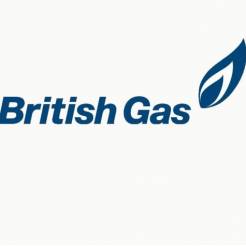The top credit card rewards schemes pay you £3 for every £100 spent on them, an easy way to make £100s or £1,000s a year just by changing plastic. Yet some use impenetrable points systems to disguise poor payouts.
This guide intensively analyses every major scheme to calculate the best-buys for frequent flyers, cash, and more and includes the RewardsChecker tool to compare all the schemes.

How Rewards Cards Work
The premise is quite simple, spend on one of these cards and they pay you. Do it right and you can earn £100s or even £1,000s a year worth of goodies, at no cost. Everyone should consider it.
It sounds great, everyone loves something for nothing; yet unless you’re careful, cards will actually deliver nothing for something as there are a couple of major holes to watch for.
The reason cards give rewards is to encourage spending, as do that and they can charge us 20% APR or more and retailers up to 1%. So always follow...
If you want rewards, always set up a direct debit to repay the card in full each month, so there’s NO interest.
Sadly some card providers deliberately miss the ‘repay in full’ option off their Direct Debit forms. If so, just write ‘pay off in full' and send it in; they should honour it, though phone up to check.
It’s also worth watching for any ‘annual fee'. These are now rare, and everyone except very high spenders should avoid any card with one, as the cost isn't usually recovered by the extra rewards.
Can’t repay in full every month?
If you’re not sure you can always repay the card in full, then DON'T pick a card for rewards. Instead focus on a card with a lower interest rate; see the 0% Credit Cards guide.
As applying for any financial product has a minor credit score impact (see the Credit Rating guide), if you have existing credit card debts it's also worth prioritising making them cheap before going for rewards by doing a Balance Transfer.

Don’t believe the hype
Some schemes are focused on making people think they’re earning large, when actually payouts are pretty paltry. To what extent depends on the type of scheme.
Rewards Schemes.
Here you earn days out, flights, holidays, CDs or more by getting points, and that’s where the problems start.
For a TV programme stunt I was once asked to design a credit card that looked good, but with hidden, abysmally anti-consumer traps. Many signed up to my fake MACS card (SCAM backwards), often as it promised TWELVE Macs rewards points per pound spent.
Most people didn’t ask what the points were worth. In fact it was 0.0001p, in other words, nothing and 12 nothings... is nothing.
It's this lack of transparency that allows reward schemes to create a magical ‘something for nothing' mystique. E.g. a Marriot point is worth 0.19p compared to a Hilton HHonors point worth 0.9p, so one Hilton HHonors point is worth almost five times more than the Marriot points.
That’s what this guide focuses on; a mathematical evaluation of every scheme to pick the real winners.
Cashback or Cash-lite Cards.
Here you earn cash each time you spend, and it’s then usually paid once a year as a lump sum (see the top cashback cards guide). The main advantages are you know exactly what you’re getting and can spend the rewards anywhere.
Cash-lite schemes are where money earned can only be spent in a specific store, e.g. Argos.

Avoid balance transferring to a Reward card
In most cases, rewards are only earned when spending; balance transferring or cash withdrawals almost never count. From the beginning of 2011 the rules on where your credit card repayments are allocated changed.
Banks must now put any repayments towards the most expensive debts first. This means transferring a balance to a reward card isn't as bad as it used to be, but can still cost you if you're not careful.
Avoid balance transferring on a Rewards card
Many reward credit cards try and tempt you with competitive balance transfer offers, they want you to both spend and shift debts to the card. It'll end up costing you as you're unlikely to be able to afford to repay the card in full. Instead use a separate card for Balance Transfers.
Never use credit cards for withdrawing cash
Withdraw cash and you'll often be charged a fee and you’ll get penalised with heavy interest if you’re unable to pay it off in full. The rule's simple: never, ever, ever use credit cards for cash withdrawals.
Use the card for all spending
Once you set up a credit card, every time you use it you get paid. While this isn't an excuse to 'spend more' it does mean from now on...
Use the rewards card for ALL normal spending, replacing cash, cheques, and other debit, credit & charge cards.
For those who have work expenses they need to reclaim, this can be a powerful way to earn more, at no cost to you, provided you can cope with paying the bill in full each month.
Yet do beware of setting up regular payments from it, or any other credit card, though. These are technically called recurring payments and unfortunately, unlike standing orders or Direct Debits, once set up you can't cancel them, only the company you're paying can. If you're in dispute, this can be a nightmare (see the Recurring Payments guide for more).

There's extra protection on all spending too...
There's another big bonus to using a rewards card, you actually have far more consumer protection. This all comes about due to what's called Section 75 of the Consumer Credit Act 1974 which says...
75. — (1) If the debtor under a debtor-creditor-supplier agreement falling within section 12(b) or (c) has, in relation to a transaction financed by the agreement, any claim against the supplier in respect of a misrepresentation or breach of contract, he shall have a like claim against the creditor, who, with the supplier, shall accordingly be jointly and severally liable to the debtor.
Which of course, reads like gobbleydegook... yet in a nutshell means:
Buy something costing over £100, here or abroad, and pay on a credit card, and the card issuer's equally liable if something goes wrong.
Now this protection only applies to credit cards, not debit cards or any other plastic and it's hugely important, especially in the current credit crunch climate. It means order something and if the retailer went kaput, you'd still be able to claim your money back from the card company. Read a full article on Section 75 refunds.
Also grab Credit Card Freebies.
Many credit cards offer incentives like free flights or electronic goods for you to sign up to the card. Therefore if you've a good credit score, just take advantage by signing up even if you don't want the card. A full list of what's available is in the Credit Card Freebies guide.
Best Buy Credit Card Reward Schemes
These results are based on evaluating over 40 schemes, calculating the actual value of the rewards for spending. This is done by first number-crunching what an individual point’s really worth, then how many points you get when you spend. Read full details on the valuation processEvaluating credit card rewards
The strength of a rewards card is derived from three main factors; the value of a point in the scheme, how many points a card gives you when you spend, and how useful the rewards are for you.
We researched, number-crunched then evaluated all major rewards schemes and cards to uncover the real return you get. We’ve split the top payers into categories, enabling you to pick the best-suited card.
The same consistent methodology has been used in prior incarnations of this guide for over 5 years.
Calculating how much a point is worth
Seven rewards were randomly selected and valued per scheme. The valuation assigned is its ‘real' rather than recommended retail price. For example, while a points provider will often list a CD as being worth £13, if it’s commonly available for £7, we only value it at £7
These were then used to evaluate the points worth. For example, if 6,000 MSE points got you a £24 MP3 player, then one point is worth around 0.4p. The average value of a point over the seven goods is then calculated.
For flight points, where possible the same journeys were used for different schemes to give a consistent valuation. Though this does mean the valuation scheme doesn’t included additional perceived value for travelling on some airlines.
Calculating how good a scheme is.
Once we know what a point is worth, it is a question of establishing how many points you get when you spend.
For example the Torvill scheme may have points worth a penny, for which you gain one per £1 of spending.
Meanwhile the Dean scheme has points worth 16p, but you only get one per £20 of spending.
So spend £100 on each card and the Torvill scheme gives you £1 worth of points and the Dean scheme 80p.
When estimating annual rewards, any annual fee the card may charge is subtracted.
Only includes currently available card incarnations.
This research was published in June 2009, and included all major rewards cards open to new customers at that point. Yet it's possible you may have an older, now unavailable card which pays better rewards, so always check.
If you spot a card that you think merits inclusion, please email rewardschecker@moneysavingexpert.com.Only general spending counts.
Only rewards received on general spending are included, so if a card pays higher rewards in specific shops, that spending is excluded, as that's effectively a shopping loyalty bonus not a credit card reward scheme.
The rewards are measured in percent. So a 1.5% reward means you get an average £1.50 worth of points for each £100 spent.
Unless stated, all cards were judged on annual spend of £10,000; very achievable if you lump all your normal spending on it. Plus it incorporates annual fees and unless noted, introductory bonus points. We’ve separated the top deals into categories.
Maximum Payout Winners
These are quite simply the cards that give the most rewards for your spending, irrelevant of how useful those rewards are.
- The Benchmark… Amex Platinum.
5% cashback for three months then up to 1.25% after
Click for full info
This is the card every other needs to be judged against, as cash is the most flexible reward. The American Express* Platinum Moneyback card pays new cardholders an unbeatable 5% cashback, 5p per £1 spent, for three months up to a maximum of £2,000 spending (£100 cashback earned). After that its rates are tiered depending on how much you spend, up to 1.25% cashback.
The super-high rate only lasts three months, so try and time the application, so that the 5% rate coincides with a period of high spending e.g. if you're moving house, or for Christmas and January sales.
Plus if you apply before 18 July 2011, via comparison Beatthatquote (use special link above), you get an extra £15 cashback within two months of being accepted. It doesn't state this on the page you see, but we have written confirmation of the deal from Amex.
If you're in a relationship and trust each other, maximise the gain by both applying for a card at staggered periods, meaning you’ll get two bites at the 5% cashback cherry. For more details and a special calculator on this, read Top Cashback Cards.
A couple of warnings are necessary though. Spend under £3,000 per year (from the date you get the card) and Amex won't pay you ANY cashback at all. Even more severely, spend nothing on it in a twelve month period and you'll be hit with a £20 dormancy fee. The solution's simple; if you'll spend less than £3,000 a year, go for the next best card. The 19.9% representative APR means you should make sure you pay the card off in full each month.
 Quick Stats: Intro Cashback. 5% for 3 months on up to £2,000. Standard Cashback. 0.5% on up to £3,500/year, 1% on £3,500 to £7,500k/year and 1.25% above that. Representative variable rate: 19.9% APR Annual Fee: None Min. Income: £30,000 per household. Max. cashback/year: NONE Min. cashback/year: £12 Cashback expiry: N/A Official APR Example
Quick Stats: Intro Cashback. 5% for 3 months on up to £2,000. Standard Cashback. 0.5% on up to £3,500/year, 1% on £3,500 to £7,500k/year and 1.25% above that. Representative variable rate: 19.9% APR Annual Fee: None Min. Income: £30,000 per household. Max. cashback/year: NONE Min. cashback/year: £12 Cashback expiry: N/A Official APR Example
- British Airways Amex.
Earn 1.4% on £20k+ spend, for BA flights plus tricks to boost that further.
Click for full info
For some this card is a gateway to huge rafts of seriously cheap flights on one of the world’s biggest airlines, others don’t see what all the fuss is about.
The British Airways Amex* card pays one BA Mile for each £1 you spend. Each miles’s worth 0.68p, giving a pretty pedestrian standard return of around 0.7%.
Not too good so far, yet spend over £20,000 in a year, and you get one free ‘companion ticket’ when booking a flight, potentially doubling the reward to 1.4%. So if you’re in a trusting relationship its worth you both spending on a joint card.
Plus you can purchase up to 19,000 more points, and the companion ticket is still valid to double those up (provided the whole flight’s paid for in points). Compare this with the other frequent flyer cards in the Airline Credit Cards guide.
Better still, once a year (a heads up will go in the weekly email) it tends to hold a flight sale where you only need use half the points (doubling the reward to 2.8% if all these are used in combination), for business flights especially this can be a very valuable card (see Martin’s £300 BA biz class to USA blog). The 19.9% representative APR means you should make sure you pay the card off in full each month.
 QUICK STATS: Representative variable rate: 19.9% APR. Annual Fee: None Reward Scheme: BA Miles. Value of 1 point: 0.68p Points per £100: 100. Freebie? 1,000 miles when you spend £500 in first 3 months Min. Income: £30,000 per household. Points’ expiry:. 36 months, if you don't earn or redeem miles in that time Taxes included? No. Official APR Example
QUICK STATS: Representative variable rate: 19.9% APR. Annual Fee: None Reward Scheme: BA Miles. Value of 1 point: 0.68p Points per £100: 100. Freebie? 1,000 miles when you spend £500 in first 3 months Min. Income: £30,000 per household. Points’ expiry:. 36 months, if you don't earn or redeem miles in that time Taxes included? No. Official APR Example
- BMI Amex.
Earn 1.3% on BMI flight and get a FREE intro return flight
Click for full info
The BMI Amex* card, pays 1.5 ‘destinations miles’ for every £1 you spend, to be spent on Star Alliance flights which includes BMI (see full list of airlines). These are worth 0.86p on average, giving a 1.29% yearly return.
Yet here the real boon is a huge introductory bonus of 20,000 miles when you spend £250 in the first 90 days; enough for a business class flight to Russia or Turkey, or two economy flights to France, Germany and more. For all the top frequent flyer cards see the Airline Credit Cards guide. The 16.9% representative APR means you should make sure you pay the card off in full each month.
A second card, the BMI Plus Amex, pays two miles per £1, and gives a bigger intro bonus of 24,000. Yet here there is a £60 annual fee to pay. After the maths, that card is better for anyone who’ll spend over £20,000 every year, but you’d have to keep that up, or lose out. This card has a 17.9% representative APR on card purchases. This is equivalent to 34.5% APR representative variable rate as an annual fee of £85 is payable.
 QUICK STATS: Representative variable rate: 16.9% APR. Annual Fee: None Reward Scheme: Destinations Miles. Value of 1 point: 0.86p Points per £100: 150. Freebie? 20,000 miles. Points’ expiry: Only if you haven't earned or redeemed a point in 12 months. Taxes included? No. Official APR Example
QUICK STATS: Representative variable rate: 16.9% APR. Annual Fee: None Reward Scheme: Destinations Miles. Value of 1 point: 0.86p Points per £100: 150. Freebie? 20,000 miles. Points’ expiry: Only if you haven't earned or redeemed a point in 12 months. Taxes included? No. Official APR Example
Cash and Cash-Lite
Cashback cards are becoming an endangered species, so here we’re listing the best cash and near-cash options, with the second bunch meaning points that can be used as cash in a specific store, thus can be exchanged for a much higher variety of items than most other rewards schemes.
- American Express Platinum.
5% cashback for 3 months, then up to 1.25% after.
Click for full info
The American Express* Platinum Moneyback card pays new cardholders an unbeatable 5% cashback, 5p per £1 spent, for three months up to a maximum of £2,000 spending (£100 cashback earned). After that its rates are tiered depending on how much you spend, up to 1.25% cashback.
The super-high rate only lasts three months, so try and time the application, so that the 5% rate coincides with a period of high spending e.g. if you're moving house, or for Christmas and January sales
Plus if you apply before 18 July 2011, via comparison Beatthatquote (use special link above), you get an extra £15 cashback within two months of being accepted. It doesn't state this on the page you see, but we have written confirmation of the deal from Amex.
If you're in a relationship and trust each other, maximise the gain by both applying for a card at staggered periods, meaning you’ll get two bites at the 5% cashback cherry. For more details, notes on Amex acceptability, and a special calculator on this, read Top Cashback Cards. The 19.9% representative APR means you should make sure you pay the card off in full each month.
Who’s it best for? Households with over £30,000 income who’ll spend over £3,000 per year (below that it doesn’t pay cashback). Unless you’ve...
Already got it? The mammoth intro cashback makes it a winner for the first year; after that it only wins for those spending approx £10,000+ otherwise the cards below beat it.
Any warnings? Spend nothing in a year and you'll be hit with a £20 dormancy fee – so only get it if you’ll use it. .
 Quick Stats: Intro Cashback. 5% for 3 months on up to £2,000. Standard Cashback. 0.5% on up to £3,500/year, 1% on £3,500 to £7,500k/year and 1.25% above that. Representative variable rate: 19.9% APR Annual Fee: None Min. Income: £30,000 per household. Max. cashback/year: NONE Min. cashback/year: £12 Cashback expiry: N/A Official APR Example
Quick Stats: Intro Cashback. 5% for 3 months on up to £2,000. Standard Cashback. 0.5% on up to £3,500/year, 1% on £3,500 to £7,500k/year and 1.25% above that. Representative variable rate: 19.9% APR Annual Fee: None Min. Income: £30,000 per household. Max. cashback/year: NONE Min. cashback/year: £12 Cashback expiry: N/A Official APR Example
If you spend under £3,000 in the first year, or under £10,000 in subsequent years. In those cases, here are the alternative winners...
-
American Express Rewards.
Up to 1.5% in high street vouchers, plus £90 freebie
Click for full info
The American Express Rewards* pays you points that can be exchanged for gift vouchers for a good selection of high street retailers: Marks & Spencer, House of Fraser, Amazon, Boots, HMV, Waterstones, iTunes & more
The speed you earn reward points depends on where you shop. You accrue 3 points per £1 spent in supermarkets, 2 points per £1 in department stores and 1 per £1 anywhere else. Each point is worth 0.5p, so this equates to a 1.5%, 1% and 0.5% cashback card respectively.
Plus you can also get up to 18,000 extra points (worth £90). You'll get 6,000 points in each month you spend over £500 for the first three months.
A couple of things to watch out for here. First, if you don't spend on the card for twelve months, you'll be charged a £20 dormancy fee, so only get it if you'll use it. Also, if you spend over £500 in supermarkets in one month, the extra spending earns just 1 point per £1. The 17.9%
representative
APR means you should make sure you pay the card off in full each month. For full details on the card, read the Cashback Credit Cards guide.
 Quick Stats: Rewards. 3 points per £1 in supermarkets, 2 points per £1 in department stores, 1 point per £1 elsewhere. Representative variable rate: 17.9% APR Min. Income: £30,000 per household Min spend to earn rewards: N/A. Max. rewards/year: NONE Official APR Example
Quick Stats: Rewards. 3 points per £1 in supermarkets, 2 points per £1 in department stores, 1 point per £1 elsewhere. Representative variable rate: 17.9% APR Min. Income: £30,000 per household Min spend to earn rewards: N/A. Max. rewards/year: NONE Official APR Example
-
MBNA Amex.
Earn 1.5% for supermarket/petrol, 0.75% elsewhere
Click for full info
The MBNA Amex* card pays 1.5% on money spent in most supermarkets or petrol stations and 0.75% everywhere else. There's no maximum limit to how much you can spend and no minimum income required to apply, however you'll still need a good credit rating.
Ensure you repay in full every month so you avoid the big 18.9% representative APR.
 Quick Stats: Standard Cashback. 1.5% on supermarket/petrol and 0.75% on everything else Standard Rate: 18.9% APR Monthly Fee: N/A. Income: N/A. Max. cashback/year: N/A Official APR Example
Quick Stats: Standard Cashback. 1.5% on supermarket/petrol and 0.75% on everything else Standard Rate: 18.9% APR Monthly Fee: N/A. Income: N/A. Max. cashback/year: N/A Official APR Example

Flights
There are a huge number of different schemes, but part of the choice depends on which airlines you prefer and their availability as often the big gain comes from using credit card points along with points from frequent flying.
Do watch out for taxes and charges though; most reward schemes make you pay these on top. In some cases you may find it cheaper to use the Cheap Flights guide instead or for dedicated flyers see the Airline Credit Cards guide.
- British Airways Amex.
Earn 1.4% on £20k+ spend, for BA flights plus tricks to boost that further.
Click for full info
For some this card is a gateway to huge rafts of seriously cheap flights on one of the world’s biggest airlines, others don’t see what all the fuss is about.
The British Airways Amex* card pays one BA Mile for each £1 you spend. Each miles’s worth 0.68p, giving a pretty pedestrian standard return of around 0.7%.
Not too good so far, yet spend over £20,000 in a year, and you get one free ‘companion ticket’ when booking a flight, potentially doubling the reward to 1.4%. So if you’re in a trusting relationship its worth you both spending on a joint card.
Plus you can purchase up to 19,000 more points, and the companion ticket is still valid to double those up (provided the whole flight’s paid for in points). Compare this with the other frequent flyer cards in the Airline Credit Cards guide.
Better still, once a year (a heads up will go in the weekly email) it tends to hold a flight sale where you only need use half the points (doubling the reward to 2.8% if all these are used in combination), for business flights especially this can be a very valuable card (see Martin’s £300 BA biz class to USA blog). The 19.9% representative APR means you should make sure you pay the card off in full each month.
 QUICK STATS: Representative variable rate: 19.9% APR. Annual Fee: None Reward Scheme: BA Miles. Value of 1 point: 0.68p Points per £100: 100. Freebie? 1,000 miles when you spend £500 in first 3 months Min. Income: £30,000 per household. Points’ expiry:. 36 months, if you don't earn or redeem miles in that time Taxes included? No.Official APR Example
QUICK STATS: Representative variable rate: 19.9% APR. Annual Fee: None Reward Scheme: BA Miles. Value of 1 point: 0.68p Points per £100: 100. Freebie? 1,000 miles when you spend £500 in first 3 months Min. Income: £30,000 per household. Points’ expiry:. 36 months, if you don't earn or redeem miles in that time Taxes included? No.Official APR Example
- BMI Amex.
Earn 1.3% on BMI flight and get a FREE intro return flight
Click for full info
The BMI’s Amex* card, pays 1.5 ‘destinations miles’ for every £1 you spend, to be spent on Star Alliance flights (see full list of airlines). These are worth 0.86p on average, giving a 1.29% yearly return.
Yet here the real boon is a huge introductory bonus of 20,000 miles when you spend £250 in the first 90 days; enough for a business class flight to Russia or Turkey, or 2 economy flights to France, Germany and more. For all the top frequent flyer cards see the Airline Credit Cards guide.
A second card, the BMI Plus Amex, pays two miles per £1, and gives a bigger intro bonus of 24,000. Yet here there is a £85 annual fee to pay. After the maths, that card is better for anyone who’ll spend over £14,000 every year, but you’d have to keep that up, or lose out.The 15.9% representative APR means you should make sure you pay the card off in full each month.
 QUICK STATS: Representative variable rate: 15.9% APR. Annual Fee: None Reward Scheme: Destinations Miles. Value of 1 point: 0.86p Points per £100: 150. Freebie? 20,000 miles. Points’ expiry:Only if you haven't earned or redeemed a point in 12 months. Taxes included? No. Official APR Example
QUICK STATS: Representative variable rate: 15.9% APR. Annual Fee: None Reward Scheme: Destinations Miles. Value of 1 point: 0.86p Points per £100: 150. Freebie? 20,000 miles. Points’ expiry:Only if you haven't earned or redeemed a point in 12 months. Taxes included? No. Official APR Example
- Lloyds Airmiles Amex.
Earn 0.87% in Airmiles (for BA & others)
Click for full info
Apply for the Lloyds Airmiles Duo and you get two pieces of plastic, an Amex and a Mastercard. Always use the Amex version where possible as it pays much higher returns; one Airmile for every £10 you spend, equating to a decent 0.87% return. You can currently get:
- Apply via Airmiles* before 31 August 2011 and when you spent £10 within the first 30 days you'll get 500 Airmiles credited to your account.
While this isn't enough for a free flight 1,500 miles can get you a totally free BA return flight to a ‘Zone 2’ European destination, including all taxes and charges.
For more details on this freebie read the full Credit Card Freebies guide. The 15.9% representative APR means you should make sure you pay the card off in full each month.
 QUICK STATS: Representative variable rate: 15.9% APR. Annual Fee: None Reward Scheme: AirMiles. Value of 1 point: 8.65p Points per £100: 10. Freebie? 500 miles when you spend £10 within 30 days. Points’ expiry: 30 months, if you haven't earned one in 2 years Taxes included? Yes. Official APR Example
QUICK STATS: Representative variable rate: 15.9% APR. Annual Fee: None Reward Scheme: AirMiles. Value of 1 point: 8.65p Points per £100: 10. Freebie? 500 miles when you spend £10 within 30 days. Points’ expiry: 30 months, if you haven't earned one in 2 years Taxes included? Yes. Official APR Example
Specialist Cards
Some high paying cards are for very specific rewards; tending attract only particular groups, like those who shop a certain stores or posh hotel users. Yet if the items available appeal to you, these are good options.
- Hilton Hhonors.
Earn up to 4% but ONLY on expensive hotels
Click for full info
On the Hilton Hhonors card, you get two Hhonors points for every £1 of normal spending, which can be redeemed for a variety of travel-themed rewards, such as car rental, theme park tickets and hotel stays.
Valuing these points however isn’t straightforward; it varies hugely depending on how you spend them. Many rewards eg. gift vouchers, days out, make one Hhonor point worth 0.1 – 0.2p. Yet use them on normally expensive hotels, eg. in central London, or even the famous New York Waldorf Astoria, and the value rockets to 2-3p each!
The key here is to check the Hhonors rewards catalogue for any hotel awards you might fancy, and do the maths on how good a use of points that is. If you regularly stay in top hotels, this could be equivalent to a 2% return or better!
There’s also a sign up bonus of 7,500 points when you use the card for the first time within 90 days of getting it. The 16.9% representative APR means you should make sure you pay the card off in full each month.
 QUICK STATS: Representative variable rate: 16.9% APR. Annual Fee: None Reward Scheme: Hilton Hhonors. Value of 1 point: 0.1p – 3p Points per £100: 200. Freebie? 7,500. Points’ expiry: 12 months Official APR Example
QUICK STATS: Representative variable rate: 16.9% APR. Annual Fee: None Reward Scheme: Hilton Hhonors. Value of 1 point: 0.1p – 3p Points per £100: 200. Freebie? 7,500. Points’ expiry: 12 months Official APR Example
- Tesco.
0.75% for days out, restaurants, RAC, hotels, magazines & more
Click for full info
The Tesco Clubcard Credit Card* gives one Clubcard point for every £4 you spend on it. One point is worth 1p (so just a 0.25% return) if spend in-store at Tesco, but boosts to 3p (so 0.75%) if redeemed for Tesco's special Clubcard Rewards vouchers. These can be used for a huge array of mainly entertainment-based treats.
Using the points in this way makes it a very respectable 0.75% paying reward card, but don’t get tempted into swapping them for a discount off your weekly shop, as their worth plummets. For more details on boosting Tesco Clubcard points, read the Loyalty Points guide. The 16.9% representative APR means you should make sure you pay the card off in full each month.
 QUICK STATS: Representative variable rate: 16.9% APR. Annual Fee: None Reward Scheme: Tesco Clubcard Points. Value of 1 point: 3p on Rewards, 1p instore Points per £100: 100. Freebie? None. Points’ expiry: Points for 2 years, Rewards vouchers for an extra 6 months. Official APR Example
QUICK STATS: Representative variable rate: 16.9% APR. Annual Fee: None Reward Scheme: Tesco Clubcard Points. Value of 1 point: 3p on Rewards, 1p instore Points per £100: 100. Freebie? None. Points’ expiry: Points for 2 years, Rewards vouchers for an extra 6 months. Official APR Example
- British Home Stores.
1% off at BHS (Mens/Womens/Childrens clothing, Home furnishings)
Click for full info
The BHS Credit Card gives one BHS Reward Point for every £1 you spend on it, and its not just a storecard so you can use it anywhere. One point is worth 1p, and once you've got 500 you can get a £5 voucher to spend in department shop British Home Stores (meaning a 1% return).
This is great if you are a big BHS shopper (and you get extra advantages like discounts at special in-store events); but is obviously much less attractive if you don't go in there! Watch out though, once you get the vouchers you only have a short three months in which to spend them. The 18.9%
representative
APR means you should make sure you pay the card off in full each month.
 QUICK STATS: Representative variable rate: 18.9% APR. Annual Fee: None Reward Scheme: BHS Reward Points. Value of 1 point: 1p in BHS Points per £100: 100. Freebie? None. Points’ expiry: Points for 12 months, Rewards vouchers for 3 months. Official APR Example
QUICK STATS: Representative variable rate: 18.9% APR. Annual Fee: None Reward Scheme: BHS Reward Points. Value of 1 point: 1p in BHS Points per £100: 100. Freebie? None. Points’ expiry: Points for 12 months, Rewards vouchers for 3 months. Official APR Example
The RewardsChecker
Those are the top picks in each category; however we fully valued 40 rewards schemes, to reveal the top payers and the true return you get from any major rewards credit card.
All that data has been compiled into the free RewardsChecker; just input your estimated spend over a year, and it'll tell you what you'll earn.
Use the free calculator at www.RewardsChecker.com

Think before adding the 'insurance'
Payment protection insurance is commonly sold with credit cards - the idea is it'll make some payments for you, usually for a year, if you are unable to (eg, if you lose your job).
There have been a myriad of cases where it has been missold eg, borrowers didn't realise they were signing up for it, or it was totally unsuitable for them, and some big lenders have been fined.
The protection isn't always bad, though policies sold with cards are often overpriced (you pay a monthly amount depending on the size of your balance). If you want it, compare the lender's cover with standalone providers such as Paymentcare or Best Insurance.
Always be vigilant to check you aren't getting more than you bargained for when you fill in the application, then check your statement each month to check you aren't inadvertently paying for extras if you didn't ask for them.

Boost the value of your points.
Do remember, all these valuations are on average; for example, 1500 Nectar points is worth £7.50 if redeemed in Sainsbury, but only £5.40 if used to buy one of the digital cameras on offer.
By correctly targeting the right rewards to redeem your points on, it is possible to substantially increase the amount. To find out how to do this for all schemes and specific info for Nectar, Airmiles and Tesco read the Boost your Loyalty points guide.
Reward Cards Q&A;
A. The second source of income for card companies is the retailer. When you pay on a credit card it gets between 0.1% and 5% of what you spend from the shop/restaurant and this will often cover the cashback.
Therefore in a way all you’re doing is getting back the extra that’s been factored in to pricing for all customers to cover credit card costs.
Generally the bigger the retailer the less it pays, as it has more negotiating power with Visa or Mastercard. Also it’s worth noting Amex tends to charge retailers more, one of the reasons some smaller companies don’t accept it.
A. As many as you’re accepted for, there’s no limit. Though of course every card application has a small impact on your credit score, so the more you have the less likely you are to be accepted for more cards.
Don’t apply for lots if you may need credit for something important like a mortgage or a balance transfer card. Full info in the credit rating guide.
A. If you spend a substantial amount of money in a store then it certainly is worthwhile, but don’t let this blind you for the rest of your spending; ensure you maximise what you get elsewhere too (it may be worth having two cards).
Also remember lots of cards use a ‘double earn’ promise, so it looks like you get more points using your credit card in the linked store, but actually you would’ve got the same just using its normal loyalty card. See the Loyalty Points guide for a full explanation.
A. We aim to do the full survey and research annually, this was carried out in June 2009. However if there are any major changes to any of the headline cards listed we try to update those specifically.
A. As long as never the twain shall meet that’s fine. The golden rule (hopefully it’s large enough above), is always pay the card off in full at the end of the month. So if you have one card for rewards you do that with, and a separate card for your debts (be it a new spending or balance transfer card) then that shouldn’t be a problem.
Spotted out of date info/broken links?
Email brokenlink@moneysavingexpert.com to let us know
Always double check the product details before signing up to them

LINKS THAT HELP THIS SITE (all have a * in above article)
(this has no impact on product or pick - see explanation below)
American Express Platinum , Amex Rewards , BA Amex , Barclaycard Cashback , bmi , Lloyds Airmiles Duo , MBNA Amex , Tesco
Explanation (of * links)
How this site is funded. Two types of contacts are listed. The first, which all have a * within the main body of the articles, help MoneySavingExpert.com stay free to use, as they're 'affiliated links' which invisibly take you usually via affiliate linkage or commercial money sites, which then pay this site. It's worth noting this means the third party used may be named on any credit agreements. The second type doesn't help and therefore doesn't have a *.You shouldn't notice any difference, the links don't impact the product at all and the editorial line (the things we write) is NEVER impacted by the revenue - we aim to look at all available products. If it isn't possible to get an affiliate link for the best product, it is still included in exactly the same way. For more details read how this site is financed.
LINKS THAT DON'T HELP THIS SITE
(please only use if necessary)
No * Link Available: Best Insurance , BHS Credit Card , Paymentcare , Star Alliance
Duplicate links of the * links above for the sake of transparency, but this version doesn't help MoneySavingExpert.com:
American Express Platinum , Amex Rewards , BA Amex , Barclaycard Cashback , bmi , Lloyds Airmiles Duo , Tesco


























